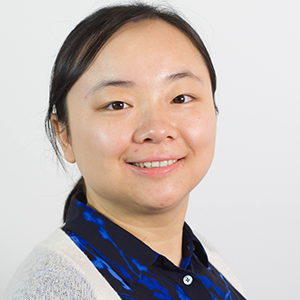Epigenetic heterogeneity in age-related clonal hematopoiesis and acute myeloid leukemia

Sheng Li
PhDUniversity of Southern California
Project Term: July 1, 2024 - June 30, 2029
Our focus is to unravel how clonal hematopoiesis (CH) progresses to leukemia. We will investigate how epigenetic heterogeneity affects Tet2-mutant hematopoietic stem cells (HSCs) during aging. We plan to simultaneously trace HSC clonal identity and clonal history by genetic barcode and single-cell multi-omics and determine their epigenetic configurations adaptive in the aged, inflammatory bone marrow. The long-term goal is to create innovative therapeutics to mitigate CH and prolong health span.
Age-related clonal hematopoiesis (CH) is an abnormal expansion of blood cells commonly associated with aging, increased mortality, and a higher risk of leukemia. CH is driven by the accumulation of mutations in hematopoietic stem cells (HSCs). These 'CH-mutations' disrupt the normal behavior of HSCs and have been implicated in the initiation of acute myeloid leukemia (AML). As the number of elderly individuals rises in the U.S., so does the prevalence of age-related CH and AML, highlighting the critical need to gain a better understanding of CH to devise novel therapeutic strategies to improve the health and life span of aging individuals. To this end, my research program aims to determine how genes that normally regulate hematopoiesis become dysregulated in aging, mutated HSCs, contributing to their clonal expansion, leading to CH and AML.
Because the behavior of HSCs is strongly influenced by their surrounding tissue, we will investigate how the aging environment triggers HSC adaptations. This approach will shed new light on leukemia development while also identifying candidate pathways that can be targeted for CH prevention or treatment. With our studies, we will (1) determine the joint impact of aging and mutation on gene regulation of HSCs; (2) trace HSCs at single-cell resolution, determine the molecular changes that drives the distinct hematopoietic clone formation and promote AML development; and (3) investigate the impact of rejuvenated bone marrow environment on age-related cellular variability. By defining key molecular features that change with age in mutated HSCs, my current and future research will fundamentally change our understanding of the role of cellular variability in sustaining somatic evolution and uncover the interaction between aging and blood cancer initiation. The expected outcome will highlight novel targets to facilitate the early detection of CH in aging individuals and the development of novel therapeutics targeting HSCs and their bone marrow environment for CH and AML prevention and treatment. Thus, the long-term goal is to devise precision medicine based on these novel targets to expand the human hematopoietic health-span and make aging and leukemogenesis optional.